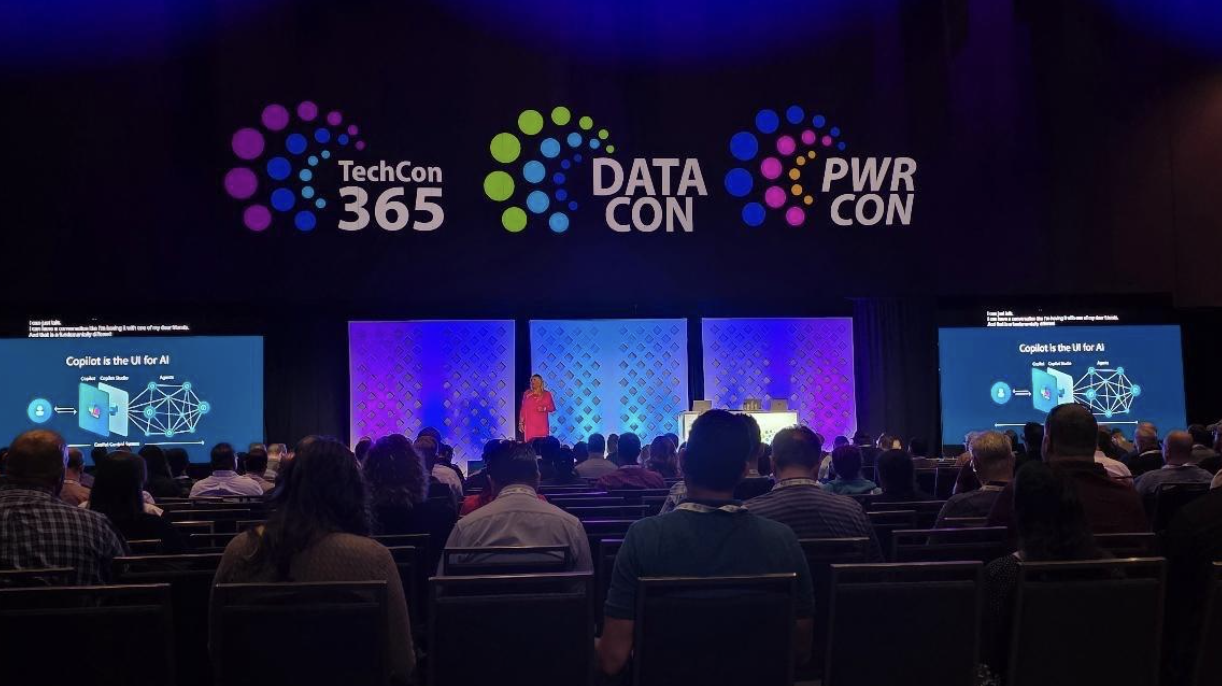Artificial Intelligence has rapidly evolved from a niche innovation to a foundational capability across sectors. As organizations integrate AI into core business processes, customer experiences, and decision-making, the importance of AI Governance has never been more urgent.
Is your organization ready for the new era of AI accountability? Before your next AI model goes live, discover why governance is no longer optional and how it can protect your business, your customers, and your future.
Contact us to learn how to implement AI governance strategy in 2025.
What Is AI Governance?
AI Governance refers to the set of policies, procedures, and technologies that ensure AI is used responsibly, ethically, and in compliance with legal frameworks. It serves as the backbone for AI accountability, addressing critical areas such as data privacy, bias mitigation, explainability, auditability, and regulatory alignment.
It is no longer sufficient to build powerful AI models; we must also ensure that these models are safe, fair, and trustworthy. AI governance platforms guide organizations in implementing responsible AI practices and help avoid the risks of algorithmic bias, unethical use, or data misuse challenges that have already emerged in recent years with the explosive growth of AI.
Why Is AI Governance Important?
AI systems are increasingly influencing decisions that impact people’s lives, from loan approvals and medical diagnoses to hiring processes and public policy. Without clear governance, these systems can inadvertently cause harm, discriminate, or operate without transparency.
AI governance platforms address this by helping organizations:
- Ensure compliance with emerging global regulations (like the EU AI Act).
- Detect and mitigate bias and discrimination in models.
- Build audit trails for accountability and traceability.
- Provide model explainability to internal and external stakeholders.
- Align data science, legal, compliance, and business teams for coordinated oversight.
Key Features to Look for in AI Governance Platforms
When evaluating AI governance solutions, organizations should look for platforms that offer:
- Regulatory compliance support and pre-built policy templates.
- Model versioning and traceability features.
- Bias and drift detection tools.
- Explainability dashboards and transparency controls.
- Seamless integration with MLOps pipelines and existing data governance tools.
- Collaboration portals for legal, data science, compliance, and executive teams.
Integration is also a key factor leading platforms today offer APIs and connectors to plug into business analytics, data catalogs, and existing machine learning environments with minimal disruption.
Leaders in AI Governance: Platforms to Know in 2025
Several platforms are leading the AI governance landscape in 2025, each offering unique capabilities tailored to different organization sizes and industry needs.
- Azure Machine Learning (Microsoft): A comprehensive platform integrating governance tools, Responsible AI dashboards, and seamless MLOps compatibility within the Azure ecosystem. Ideal for enterprises with existing Microsoft infrastructure.
- Collibra: Known for its strong data governance roots, Collibra adds AI oversight with model traceability and compliance dashboards—best suited for large enterprises with complex regulatory demands.
- Credo AI: Offers policy-driven AI governance with built-in templates for global regulations like the EU AI Act and New York/Colorado frameworks. It aligns legal, risk, and data science teams through a central control hub.
- Fiddler AI: Focused on model explainability, bias detection, and fairness dashboards, Fiddler is a favorite for finance and healthcare organizations with critical risk governance needs.
- Holistic AI, Anch.AI, and Fairly AI offer lightweight, agile governance tools with specialized compliance checks, ideal for mid-size firms and regulated industries.
- Arthur AI, Zest AI, Parabole, Monitaur, and Zeno by CalypsoAI provide specialized solutions for specific industries like lending, insurance, and GenAI use cases.
For startups or organizations in early AI adoption, tools like Fairly AI and Anch.AI offer strong compliance capabilities with simplified workflows and affordable pricing tiers.
Do I Need AI Governance for Small-Scale Projects?
Yes. Even small projects can introduce risks especially when they impact external users. Setting governance practices early avoids future complications and builds a foundation of responsibility and trust. Just as cybersecurity is required regardless of company size, ethical AI is becoming a universal expectation.
How AI Governance Differs From MLOps
While MLOps focuses on operationalizing models scaling, automating, and deploying AI efficiently AI Governance ensures that those models operate responsibly. Governance adds layers of oversight for compliance, ethics, bias control, and accountability.
In practice, the two are complementary. A high-functioning AI ecosystem should integrate MLOps for productivity and AI Governance for trust.
The Importance of Acting Early
AI governance is not a luxury. It is a strategic necessity for any organization building or using AI. Acting early prevents legal and reputational damage, fosters internal accountability, and strengthens public trust in your technology.
How to Choose the Right Platform
Choosing the right governance platform depends on several factors:
- Your industry and the regulatory environment.
- The complexity and scale of your AI models.
- Your existing tools and tech stack.
- The maturity of your team’s understanding of AI risks and ethics.
- A careful assessment ensures your investment in governance aligns with your current and future AI ambitions.
Explore Leading Platforms
Ready to explore AI governance solutions? Start by reviewing demos and vendor capabilities:
Collibra / Azure ML (Microsoft) / Holistic AI / Fiddler AI / Fairly AI/ Credo AI

Future Trends in AI Governance
As artificial intelligence becomes more deeply integrated into business operations, products, and public infrastructure, AI governance will evolve from a best practice to a regulatory and competitive requirement. In the coming years, we can expect significant changes that reshape how organizations manage and monitor AI systems.
1. Real-Time Compliance Monitoring
Organizations will move from periodic audits to real-time compliance tracking, using automated tools that flag violations or risks as they happen. Governance platforms will offer continuous oversight of model behavior, data inputs, and outputs much like real-time threat detection in cybersecurity.
This will enable companies to:
- Detect emerging bias, drift, or non-compliance instantly
- Respond proactively to regulatory updates
- Maintain dynamic alignment with evolving ethical standards
2. Standardized AI Audit Frameworks
We are on the cusp of global standardization of AI audits, with frameworks similar to ISO or SOC standards in cybersecurity and data governance. Governments, industry alliances, and international bodies are working on common criteria for explainability, fairness, and accountability.
Expect the rise of:
- Independent AI audit certifications
- Required model documentation templates
- Regulatory scorecards used in procurement and investment decisions
3. Increased Global Regulation and Enforcement
2025 marks a tipping point for AI regulation. With the EU AI Act taking effect and other jurisdictions (e.g., U.S., Canada, Singapore, Brazil) following suit, organizations will face a patchwork of laws they must navigate. These laws will cover:
- Risk classification of AI systems
- Mandatory impact assessments
- Documentation and transparency obligations
- Human oversight requirements
Regulatory enforcement will also intensify, with fines, bans, and operational restrictions imposed for non-compliance.
4. Cross-Functional Governance Teams
Governance will no longer be the responsibility of just data scientists or legal teams. Leading organizations will create AI Governance Councils or Responsible AI Committees that include:
- Legal and compliance professionals
- Data scientists and MLOps engineers
- Product managers and ethicists
- C-level leadership for strategic alignment
This integrated approach ensures AI governance becomes part of the business DNA, not just an afterthought.
5. Ethical AI as a Brand Differentiator
Consumers, investors, and employees are becoming more vocal about ethical technology. In response, businesses will compete on transparency and responsibility, making AI governance a strategic brand asset.
Expect to see:
- Public model transparency reports
- Third-party ethics reviews
- “Ethical AI” certifications featured in marketing and investor materials
6. Governance for Generative AI
With the explosion of generative models, new governance challenges will arise focused on content attribution, misinformation risks, IP protection, and user misuse.
Governance tools will begin offering:
- Guardrails for GenAI applications
- Watermarking and provenance tracking
- Moderation and risk controls for LLM outputs
Take action today before regulators or risks force your hand. Start by evaluating your current AI oversight, aligning your teams, and exploring governance platforms that fit your needs. Schedule a platform demo, engage your compliance team, and begin your journey to responsible AI now.
Conclusion
As we navigate 2025, one thing is clear: AI is no longer experimental, it is essential. From customer interactions to strategic decision-making, AI systems are influencing lives, shaping industries, and redefining how organizations operate. Yet with great power comes great responsibility. The accelerated adoption of AI has introduced not only unprecedented opportunities but also new risks bias, opacity, ethical lapses, and compliance challenges that cannot be ignored.
AI governance is not a trend. It is a business imperative.Organizations that fail to proactively establish governance frameworks risk falling behind not just technologically, but ethically, legally, and reputationally. The cost of inaction is already visible in the form of regulatory crackdowns, damaged customer trust, and flawed AI decisions making headlines.
But there is a more optimistic reality: companies that embed AI governance early are positioning themselves as leaders trusted by customers, respected by regulators, and empowered to scale innovation responsibly. Governance does not stifle progress, it accelerates it by providing the clarity, control, and confidence needed to unleash AI’s full potential.
Here’s What Comes Next:
- Start with a mindset shift: View governance not as a compliance burden but as a strategic enabler.
- Build cross-functional collaboration: Align data scientists, legal teams, compliance officers, and business leaders around shared AI standards.
- Invest in scalable platforms: Choose tools that grow with your AI maturity and regulatory landscape.
- Educate and upskill your teams: AI governance isn’t just about technology, it’s about people, culture, and continuous learning.
- Stay proactive: Anticipate new laws, industry guidelines, and evolving public expectations around fairness, transparency, and safety.
- As AI becomes more deeply embedded in the DNA of every organization, the question is no longer if you need governance, it’s how well you implement it. The decisions you make today will define your AI legacy
Frequently Asked Questions (FAQ)
Isn’t AI governance only necessary for large enterprises?
A: No. Governance is critical regardless of size. Small-scale projects can still cause harm or violate regulations. Starting early builds trust and prepares for scale.
How is AI governance different from data governance?
A: Data governance focuses on managing data quality, privacy, and access. AI governance adds layers around model behavior, bias, accountability, and compliance across the model lifecycle.
What are the top risks of not having AI governance?
A: Legal penalties, biased outcomes, data misuse, loss of customer trust, and reputational damage. AI decisions affect real people—mistakes have consequences.
How long does it take to implement an AI governance platform?
A: It depends on your AI maturity, data complexity, and team structure. Some platforms offer rapid onboarding (2–4 weeks) while full-scale governance may take several months[AH1] to institutionalize.
Can governance slow down AI innovation?
A: On the contrary, it enables safe innovation. With proper guardrails, teams can move faster knowing that compliance, ethics, and risk are under control.
What’s the ROI of investing in AI governance?
A: Benefits include regulatory compliance, reduced legal risk, increased stakeholder trust, improved model performance, and smoother AI scaling across the business.



